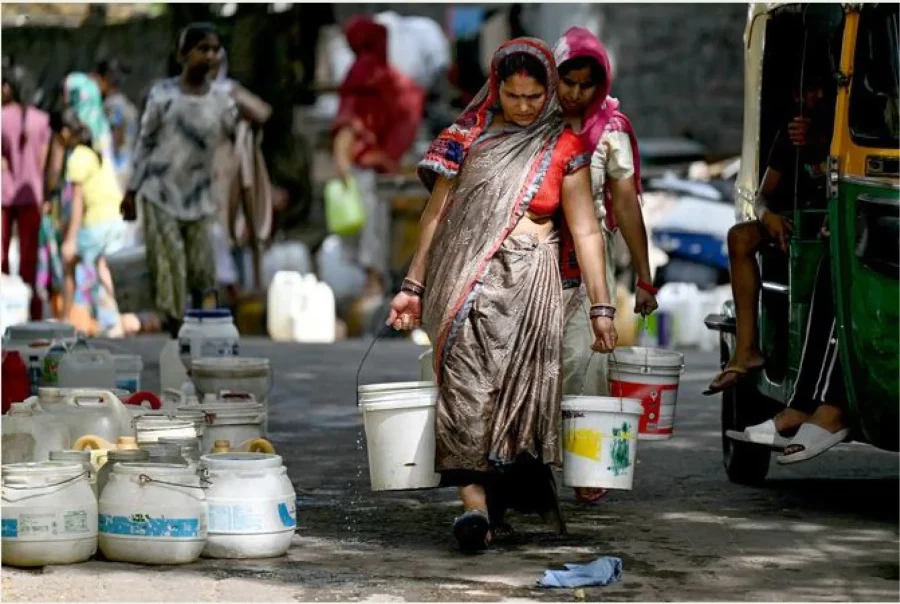The Delhi government approached the Supreme Court on Friday to help it obtain more water from neighboring states as a severe shortage has hit the Indian capital amid sweltering heat.
Delhi relies on external sources for freshwater supply, as its own groundwater resources are low. Most of the water that comes to Delhi arrives through the Yamuna River from the state of Hary-ana.
In a petition to the top court, the local admini-stration sought additional supply from its neighbours — Haryana, Uttar Pradesh, and Hi-machal Pradesh — for at least a month, as the temperature in some parts of the national capital neared 50 degrees Celsius this week due to the ongoing heatwave.
“Delhi’s need for water has increased in the scorching heat. It is everyone’s responsibility to fulfill the needs of the country’s capital,” the peti-tion said.
Delhi Chief Minister Arvind Kejriwal has ad-mitted that there was a huge gap in demand and supply in the capital city.
“Demand for water supply has shot up due to heatwaves. There has been a cut in the water sup-plied to Delhi from the neighbouring states. It means that demand is high and supply is less,” Kejriwal wrote on X on Friday, requesting Prime Minister Narendra Modi to intervene as Delhi’s neighbours were ruled by his Bharatiya Janata Party.
“We have to come together to solve this prob-lem … If the BJP speaks to its governments in Haryana and Uttar Pradesh and provides some water to Delhi for a month, then the people of Delhi will appreciate its efforts.”
More than 90 percent of Delhi’s over 18 million population has access to piped water supply, but due to acute shortages, it has not been available in several areas in East and South Delhi, where people were queuing to get water from tankers.
“It has been tough for almost a week, with my whole family queuing up for hours to fill up a couple of buckets,” Hariom Saha, a gardener living in Sanjay Camp in Chanakyapuri, told Arab News.
“I work in a private firm, and I have been re-porting at least three hours late every day. The moment we wake up in the morning, the tension starts about how to manage water for the day.”
Vikash Kumar from Geeta Colony had the same story to narrate. “Yesterday, I picked up some water to take a bath from the tap of the public toilet installed in my area because the water supply is so poor,” said Kumar, who works as a cook in a restaurant.
“We are not rich enough to buy mineral water and store it at home. We have to depend on tankers to store water, and filling water from tankers is a big task.”
Earlier this week, the Delhi government an-nounced a slew of emergency measures, including a ban on the usage of potable water for car washing and its use at construction sites. The Delhi Water Board announced a fine of 2,000 rupees ($25) for anyone found misusing the water.—AFP










